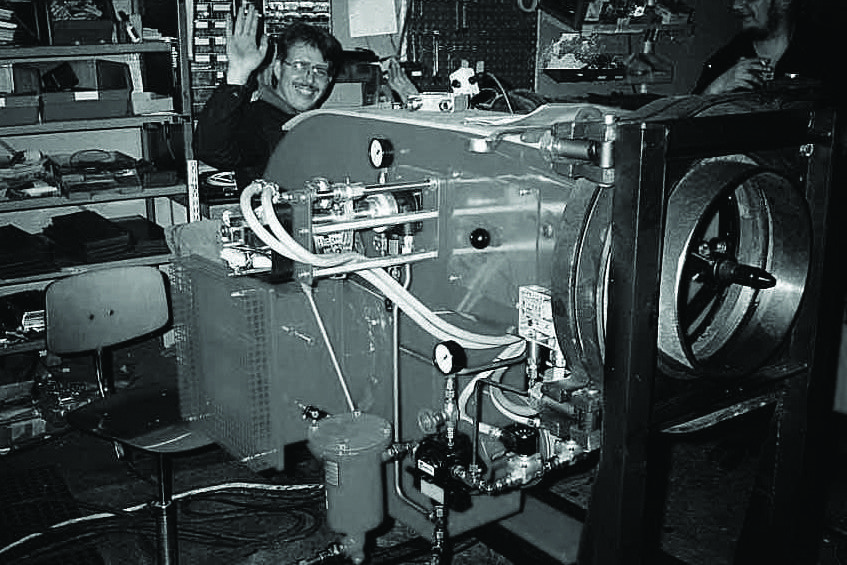
“There was a job ad in Etelä-Suomen Sanomat [a local newspaper]. Oilon was looking for two electricians. I was invited to a job interview at Oilon the next Wednesday. Back then, I had no idea what Oilon was. This was my second job, and I started working for Oilon on September 5, 1973. I was young at the time, only 17 years old. When I entered through the gates, there was no way to know that I would spend 47 happy years with Oilon,” Harri Puputti says.
Early on, Harri’s work involved installing electrical components in burners, mostly in the Junior range. For a number of years, he worked at the assembly department putting burners together, until equipment testing became the primary focus of his job. The development of testing stations and test procedures was continuous work, and continued until 2000. Active co-operation with Mechanical Engineering, Electrical Engineering, and Documentation would continue all the way to the end of Harri’s career.
“In those times, you learned by doing. What made the work interesting was that no two days were the same. My working days were really varied and challenging,” Puputti remembers. Gradually, Puputti’s work tasks started to change, as he voiced his desire to try out other jobs. From 2002 onwards, he was part of the development effort that helped Oilon establish a new factory in China. In China, Puputti provided work orientation.
“I visited China at least 25 times, sometimes several times a year. The visits lasted for several weeks. I spent half of my worktime in China, and the rest of my time was split between development work and work orientation at the Lahti factory,” Puputti says.
“It was my first flight when I first traveled to China on business. I think the flight route took me from Helsinki to Frankfurt in Germany and from there, to Beijing. It lasted at least eight hours. The flight from Beijing to Shanghai took two hours. The last leg of the trip was with a car from Shanghai to Wuxi, and it lasted three hours. Soon after that, they opened a direct flight route from Finland to Shanghai, which made it easier to travel,” Puputti says.
“My language skills really helped me when working abroad. In China, everyone spoke extremely simple English, which I could easily follow,” Puputti continues.
When reminiscing his time in China, Puputti says that one of the things he noticed was how clean the country was. In the early days, there were huge amounts of bicycles everywhere. The last times Puputti visited China, the bicycles had been replaced by electric cars and electric mopeds. In two decades, air quality had also improved massively.
“Oilon has a good standing in China. We had no problems with permits or getting things up and running – after all, Oilon is engaged in responsible and groundbreaking work towards climate conservation,” Puputti continues.
“Now that I’ve retired, I could still visit China. I would go visit my old workplaces and meet my old buddies. If I had stayed with Oilon, I would’ve probably traveled to the United States as well, but this experience eluded me. That’s a job for my successors,” Puputti says, smiling.
“Now that I’m retired, I can focus on the hobbies for which I didn’t have time during my career.” Puputti has great plans for home maintenance, playing music, taking the summer theater stage, traveling, and learning languages.
For this story, Harri visited Oilon. When he arrived, he was happy and laughing, and many former colleagues stopped by to exchange a few words with him. After the tour, Harri left happily to continue his retirement and the interesting projects waiting at home.
